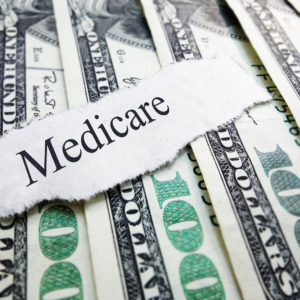Congress’ summer recess is an opportunity for legislators to hear the concerns of their constituents back home.
As in previous years, members of Congress could expect to get an earful at their town halls and constituent barbecues about the rising out-of-pocket costs of prescription drugs. According to a recent poll by the Kaiser Family Foundation, three-in-10 adults have skipped prescription drug treatments at some point during the year due to their cost, with deductibles, co-payments and coinsurance continuing to increase.
This cost concern is especially acute among seniors, who are disproportionately affected because they mostly live on fixed incomes and tend to use prescription drugs at a greater rate than younger generations. Congress can ease their pain by passing bipartisan legislation to extend the out-of-pocket maximum payment protection that the rest of us enjoy to seniors who need it the most.
Medicare Part D is supposed to cover seniors’ prescription drug costs. Yet this program is unique in that it doesn’t offer beneficiaries an out-of-pocket maximum, above which all costs are covered by insurance. Obamacare mandated this type of financial protection for all private plans, and the other parts of Medicare have it. Even healthcare plans on the individual market offer an out-of-pocket maximum payment of $7,900. Out-of-pocket maximums give patients peace of mind and allow them to more easily budget their healthcare costs.
Under Medicare Part D plans, beneficiaries pay 25 percent of their prescription drug costs until they’ve paid $5,100 out-of-pocket. Once they’ve spent this much, they reach the catastrophic coverage threshold and pay 5 percent for all subsequent prescription drug costs. While a 5 percent coinsurance cost may not seem like much, it often represents a large dollar figure for specialty medicines. Especially given that the cost never disappears.
Annual out-of-pocket costs in 2019 for Part D beneficiaries average more than $8,000 across 28 specialty tier drugs, according to Kaiser.
Therefore, patients with rare or chronic diseases are hit hardest. They’re patients like Tod Gervich, who pays about $300 a month in the catastrophic phase of Medicare — in addition to the $5,100 he’s already paid out-of-pocket — to cover the cost of his treatment, which reduces his multiple sclerosis relapses. “I feel like I’m being punished financially for having a chronic disease,” he said. He has considered skipping doses to save money.
According to Kaiser, about 3.6 million Medicare beneficiaries surpass this catastrophic limit each year. Of these, 2.6 million qualify for low-income subsidies that cover this 5 percent coinsurance cost. Yet that still leaves about 1 million seniors exposed — more than twice the number in 2007. On average, these patients are on the hook for about $1,200 a year in catastrophic coinsurance costs — about $1.2 billion for the entire population.
According to a recent survey conducted by Morning Consult, 75 percent of Americans favor legislation that would cap Medicare Part D out of pocket expenses for seniors. Most seniors even said they’d be willing to pay more in Medicare premiums in return for such protection.
There’s bipartisan legislation before the Senate that would make out-of-pocket maximums for Part D a reality. Before they broke for summer recess, the Senate Finance Committee marked up proposed legislation that would set an out-of-pocket maximum cap for Part D at $3,100, above which seniors wouldn’t be responsible for any additional costs. This threshold would be indexed to the rate of Part D spending increases.
While a cap on out-of-pocket expenses is long overdue, this specific legislation also makes other major reforms to Part D that are too broad. Aside from out-of-pocket concerns, Part D is a popular program that doesn’t require an overhaul. Doing so would create needless headaches, at best, for the 47 million beneficiaries. Policymakers should instead pursue tailored legislation that just addresses the primary concern of capping out of pocket maximums because this would have the best chance of passing and have fewer unintended consequences than comprehensive reform.
Perhaps all that’s needed to get such a quick fix across the finish line is constituents making their voices heard at town halls and constituent barbecues.

